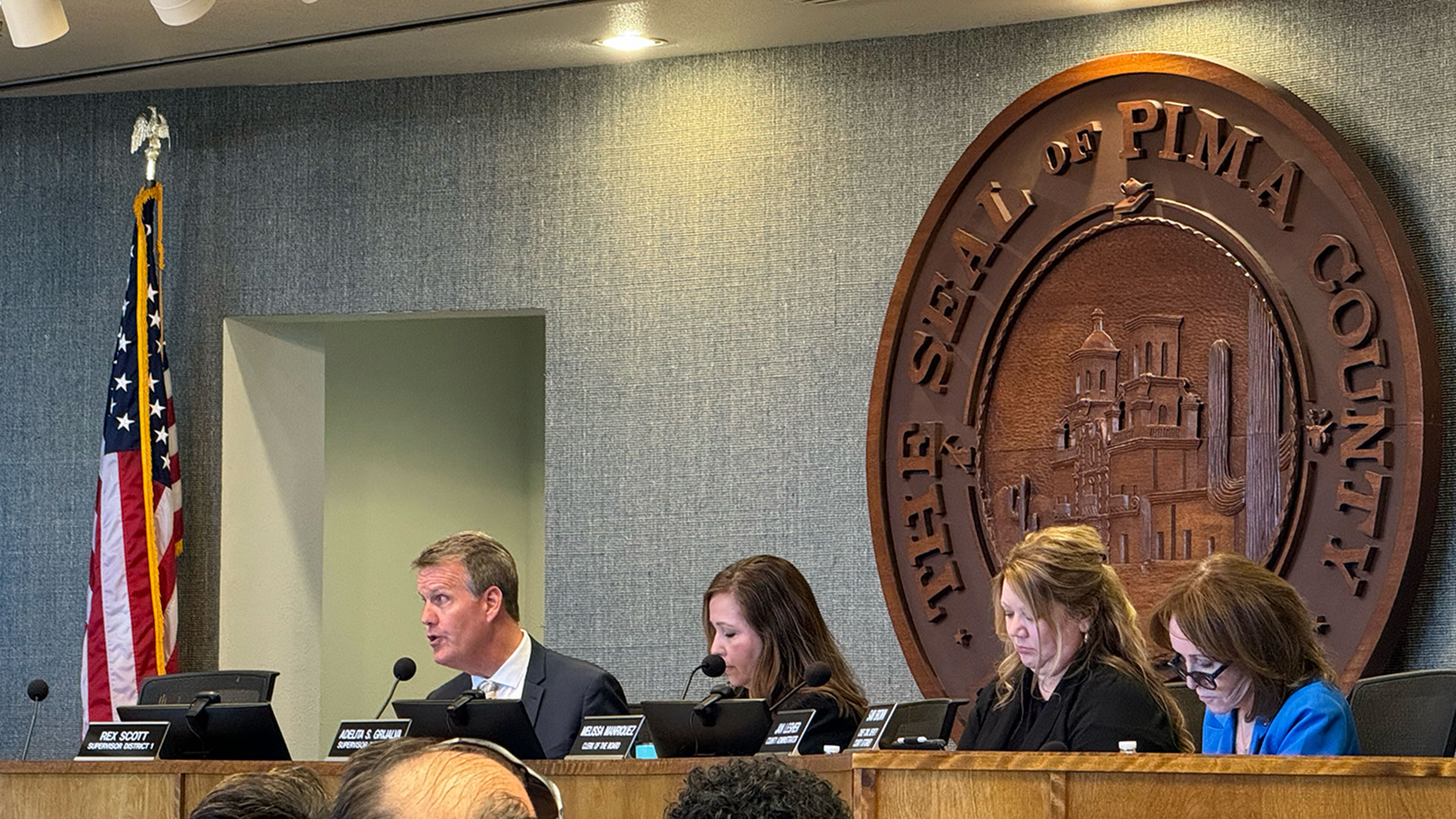 Supervisor Rex Scott speaks about the Blue Ribbon Commission's final report at the Feb. 20, 2024 Board of Supervisors meeting.
Supervisor Rex Scott speaks about the Blue Ribbon Commission's final report at the Feb. 20, 2024 Board of Supervisors meeting.
After a year of work from an independent commission investigating the many problems facing the Pima County Jail, the Board of Supervisors has now made it clear it will not fund a new $800 million jail anytime soon.
During the discussion of the Blue Ribbon Commission’s work at Tuesday’s Board of Supervisors meeting, the four Democrats were largely in favor of the recommendations presented by County Administrator Jan Lesher, rather than the extensive renovation or rebuilding of the existing jail laid out in the report.
In a memo last week, Lesher declined to put forward either option deemed feasible by the commission; an estimated $600 million dollar renovation of the existing jail, or an $800 million dollar new one.
But a new commission is now moving forward. The Democrats largely agreed with Lesher’s proposal that a new one was necessary to explore both alternatives to incarceration and how to reduce the jail’s capacity.
Board Chair Adelita Grijalva emphasized that this new commission needs to involve different stakeholders.
“I just feel it's really important to have people that are part of these programs and people who were formerly detained at the jail to help us understand what is it that works and doesn't work,” Grijalva said.
Supervisor Rex Scott raised questions about how excessive bail will be addressed in the new commission, and said the board needs to understand more about the jail population in order to reduce it. According to Scott, the Pima County Superior Court has not returned his requests for such data for six weeks.
“I'm just trying to get a sense of the composition of the jail population. And it is almost impossible to determine that composition, and it's made deliberately impossible,” he said.
On the other side, Republican Supervisor Steve Christy criticized the board’s call for more information and questioned the effectiveness of the first commission.
“What was the purpose of the commission if they can't come up with a recommendation?” Christy said. “They give several examples of what needs to be done. But they are charged with coming up with a solution, and they do not.”
The Blue Ribbon Commission previously called the option of a brand new jail, “the best option for long-term benefit of capital investment” and “the least operationally disruptive solution,” but Lesher said the report did not formally recommend one option over the other.
Community activists, many of them outspoken against the Blue Ribbon Commission over the last year, celebrated during the call to the audience.
Mia Burcham, an organizer with the No New Jail Coalition, called this a “hopeful moment,” but said the community can still do better.
“We should invest in programs that make jail unnecessary,” she said. “We can invest in housing, healthcare, community-based services, and keep people in health, community, and safety. I know we can do it because we were about to spend a billion dollars on a jail.”
No formal action was taken, but Lesher said the board can expect to discuss the charter for the new commission at their next meeting on March 5.

By submitting your comments, you hereby give AZPM the right to post your comments and potentially use them in any other form of media operated by this institution.